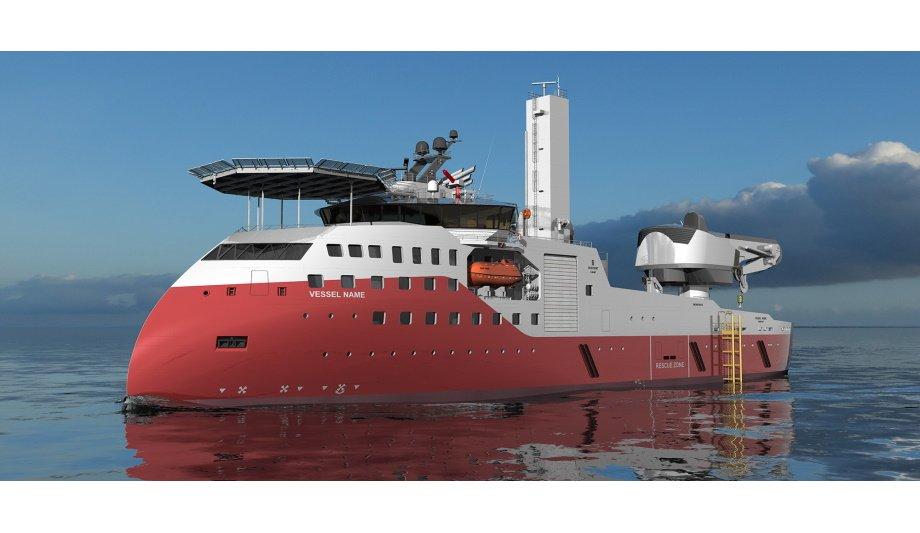Ulstein started to develop vessels for the offshore oil & gas industry in the 1970s, and dedicated vessels for the offshore wind industry after 2000.
The next-generation offshore energy vessels must be flexible and able to work year-round, and there will be several crossover vessels for these two markets.
Crossover vessel
The ocean has been and will be a substantial source of energy. Whether it is offshore oil & gas, offshore wind, or wave energy generation, these energy markets will require a large fleet of vessels supporting the complete lifecycle, including preparation, installation, extraction, operation, maintenance, and decommissioning of offshore installations.
In many cases, the vessels in these two offshore markets can take on the same operations
In many cases, the vessels in these two offshore markets can take on the same operations, but still work in separate markets. As the offshore wind segment has matured, there has also occurred a need for developing vessels to be used as a crossover between the wind and oil & gas segments.
Integrating flexibility and agility in design
To ensure the full cross-over market capability, flexibility and agility need to be integrated from the early design phase. Ulstein has studied the complete lifecycle operations of offshore installations and integrated the common characteristics and functionalities beneficial to combine.
This leads to concepts designed to perform a variety of tasks across energy markets including W2W, subsea and IMR operations, among others.
These vessels can typically be equipped with an offshore crane, ROVs, W2W gangway, working deck, and suitable accommodation. Together with our clients, we configure the optimum combination of functions for the intended purpose.
The major benefits for the vessel owner to look across segments:
- Navigating the seasonality of W2W operations - Fully covering the required functionality of a vessel during the summer peak demands, while having functionality for year-round operations within both the offshore wind and offshore oil and gas markets.
- De-risking investment by being able to serve several markets.
- Enabling a more agile transition between markets to quickly cover peak demands that conventional subsea vessels cannot serve due to time-demanding mobilisation and demobilisation requirements.
- Supporting the trend towards more unmanned offshore installations requiring walk-to-work services.
Offshore design experience is key
Knowledge and experience from the oil & gas era are key when developing high-performance offshore wind vessels. Learnings from working with dedicated vessels for the offshore wind segment can also be drawn back into the vessels for the oil & gas industry, together with the experience gained from projects within the passenger market – with high requirements for comfort and optimised logistics onboard, and fisheries – with focus on workability, resilience, and deck operations.
A combination of all these experiences is being used when developing designs needed to support both a growing offshore wind market and a strong offshore oil & gas market. Covering both segments, Ulstein is a strong partner to develop your next-generation offshore energy vessel.
